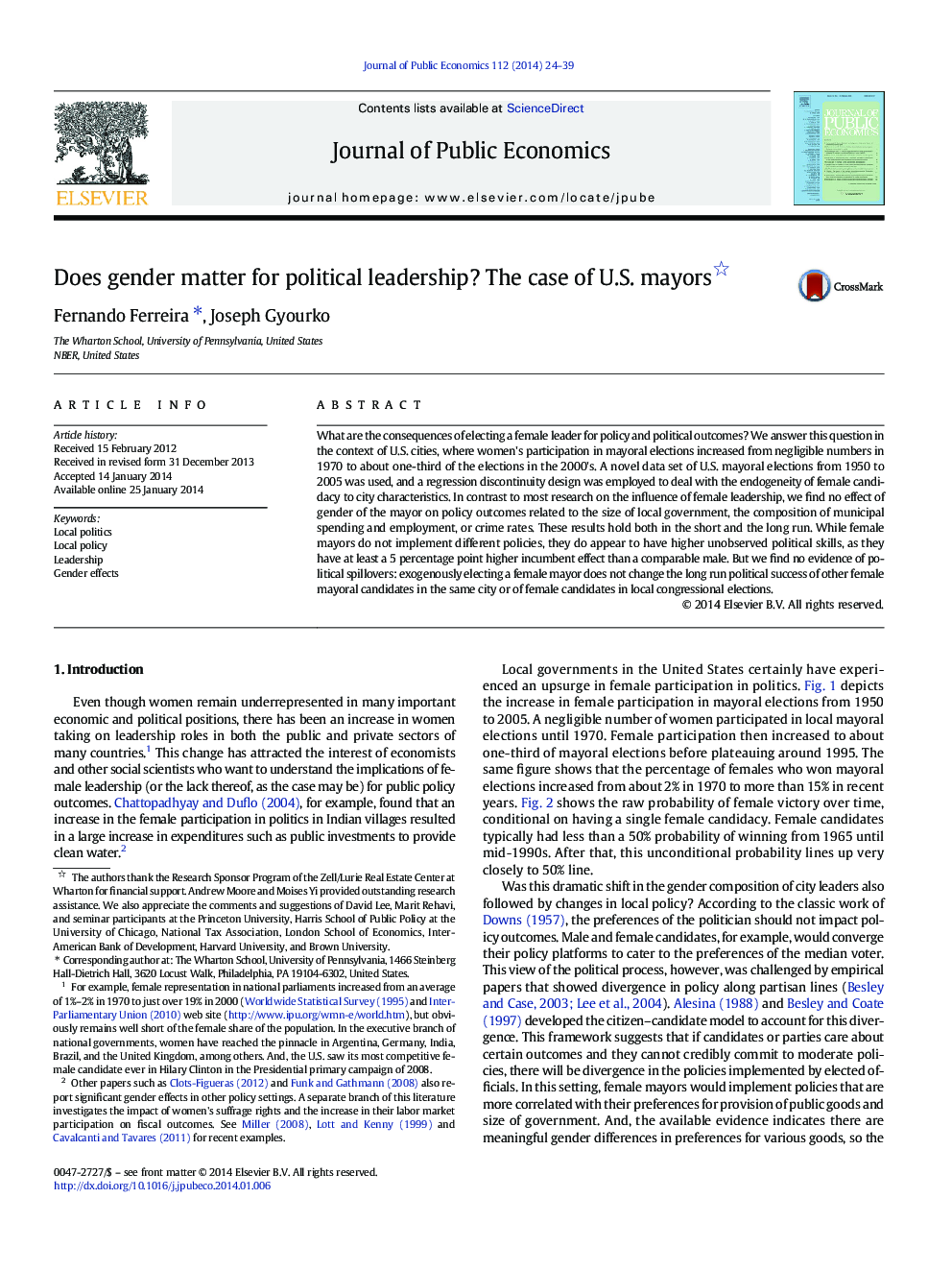| Article ID | Journal | Published Year | Pages | File Type |
|---|---|---|---|---|
| 7370391 | Journal of Public Economics | 2014 | 16 Pages |
Abstract
What are the consequences of electing a female leader for policy and political outcomes? We answer this question in the context of U.S. cities, where women's participation in mayoral elections increased from negligible numbers in 1970 to about one-third of the elections in the 2000's. A novel data set of U.S. mayoral elections from 1950 to 2005 was used, and a regression discontinuity design was employed to deal with the endogeneity of female candidacy to city characteristics. In contrast to most research on the influence of female leadership, we find no effect of gender of the mayor on policy outcomes related to the size of local government, the composition of municipal spending and employment, or crime rates. These results hold both in the short and the long run. While female mayors do not implement different policies, they do appear to have higher unobserved political skills, as they have at least a 5 percentage point higher incumbent effect than a comparable male. But we find no evidence of political spillovers: exogenously electing a female mayor does not change the long run political success of other female mayoral candidates in the same city or of female candidates in local congressional elections.
Related Topics
Social Sciences and Humanities
Economics, Econometrics and Finance
Economics and Econometrics
Authors
Fernando Ferreira, Joseph Gyourko,
